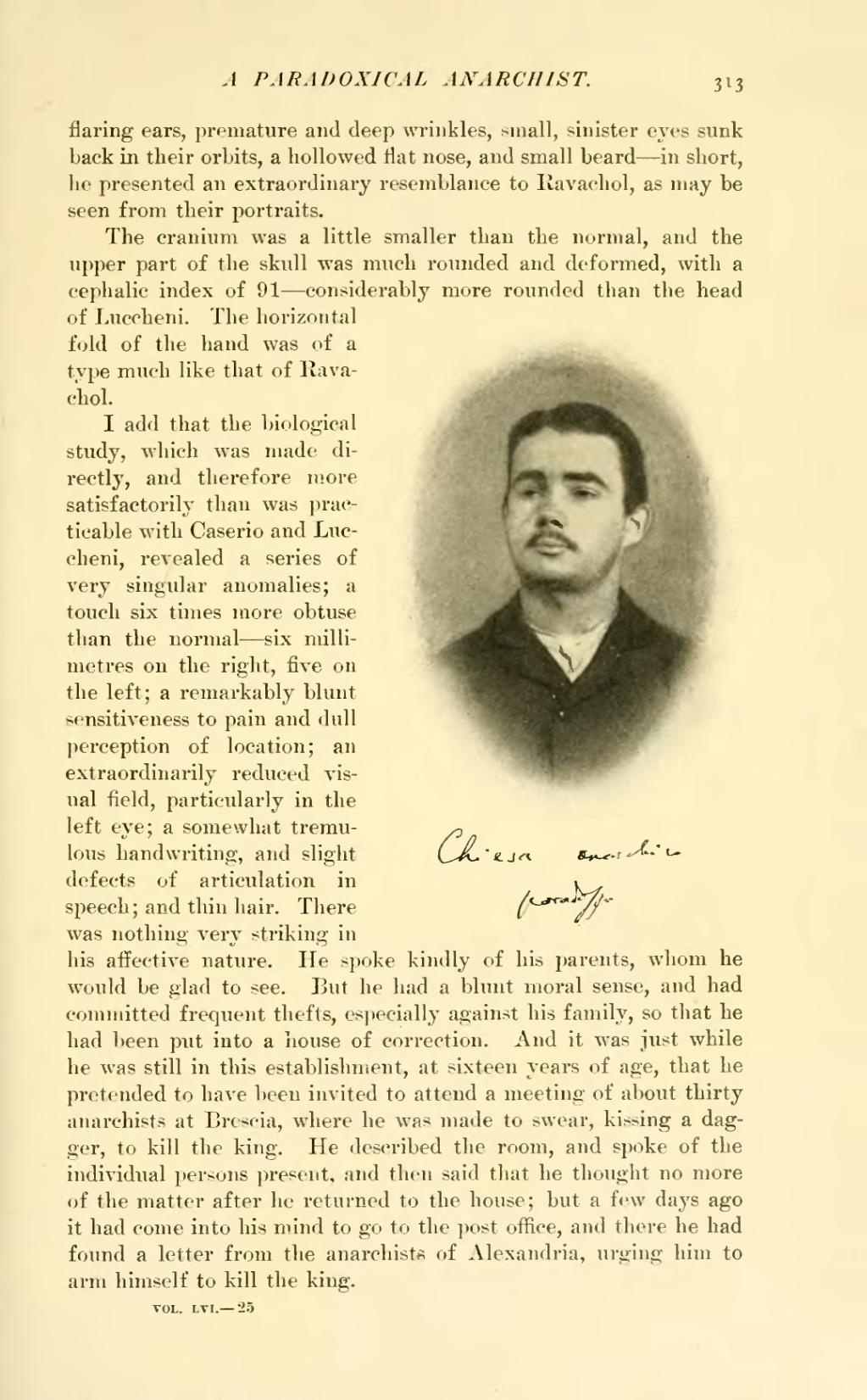flaring ears, premature and deep wrinkles, small, sinister eyes sunk back in their orbits, a hollowed flat nose, and small beard—in short, he presented an extraordinary resemblance to Ravachol, as may be seen from their portraits.
The cranium was a little smaller than the normal, and the upper part of the skull was much rounded and deformed, with a cephalic index of 91—considerably more rounded than the head of Luccheni. The horizontal fold of the  hand was of a type much like that of Ravachol.
hand was of a type much like that of Ravachol.
I add that the biological study, which was made directly, and therefore more satisfactorily than was practicable with Caserio and Luccheni, revealed a series of very singular anomalies; a touch six times more obtuse than the normal—six millimetres on. the right, five on the left; a remarkably blunt sensitiveness to pain and dull perception of location; an extraordinarily reduced visual field, particularly in the left eye; a somewhat tremulous handwriting, and slight defects of articulation in speech; and thin hair. There was nothing very striking in his affective nature. He spoke kindly of his parents, whom he would be glad to see. But he had a blunt moral sense, and had committed frequent thefts, especially against his family, so that he had been put into a house of correction. And it was just while he was still in this establishment, at sixteen years of age, that he pretended to have been invited to attend a meeting of about thirty anarchists at Brescia, where he was made to swear, kissing a dagger, to kill the king. He described the room, and spoke of the individual persons present, and then said that he thought no more of the matter after he returned to the house; but a few days ago it had come into his mind to go to the post office, and there he had found a letter from the anarchists of Alexandria, urging him to arm himself to kill the king.

